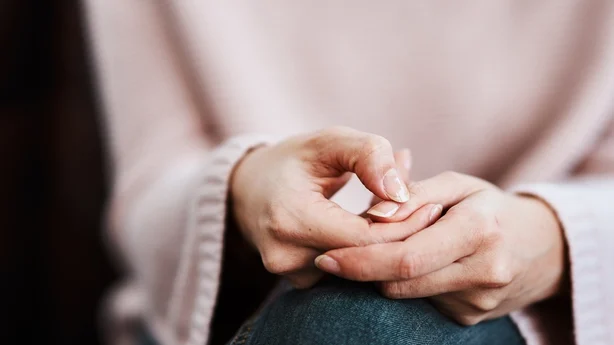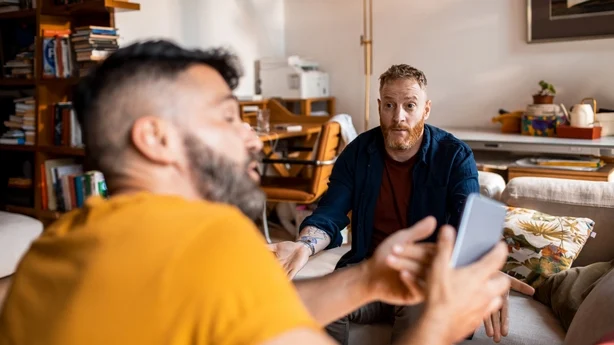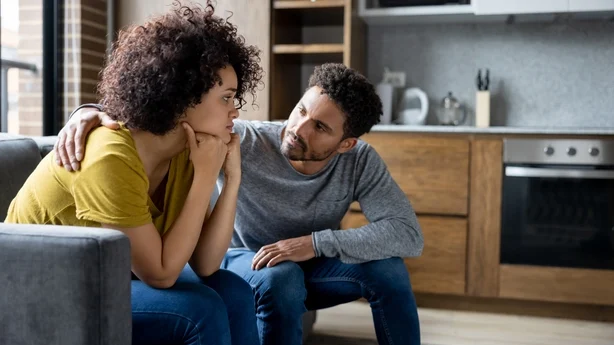Stay updated with the latest beauty tips, trends, and news from our salon experts. Our blog is your go-to source for all things beauty.
Disagreements can strengthen relationships, but how do we navigate the fear of your inevitable first fight? Kate Brayden writes about her own process of settling into a new relationship after experiencing a difficult past relationship.
‘First fight flutters’ might not be a familiar phrase for most, but those of us who have experienced toxic or turbulent relationships are likely aware of the feeling.
The first argument I can recall with a boyfriend involved jealousy. Someone who had previously only acted with a gentle demeanour had a mood swing of such intensity and speed, it made my head spin. He flew off the handle over a male friend commenting a sarcastic remark on my Instagram post, presuming the tone was flirtatious in nature.

There was no romantic or sexual history between myself and my male friend, and I assured him that he had nothing to worry about. His mood only continued to darken, storming out the door and refusing to speak to me for days - even blocking my number for a while. This thorniness quickly escalated into a far bigger pattern within the relationship, where control and aggression were at the core.
It’s impossible to forget seeing a person’s temper for the first time, when you initially saw your partner as calm and patient. I tried to shrug off the sinking, nagging feeling that his rage wasn’t just a once-off show of uncharacteristic emotion, but I was wrong.
Ignoring the warning signs caused untold amounts of harm to my life as the relationship continued, reaching a point where I felt like I was walking on eggshells 24 hours a day.

It felt like everything started to anger him - nothing I did was ever right. I started to feel incapable of saying ‘no’ to anything he wanted, no matter the consequences. I wore what he told me to wear. Anything I could do to avoid conflict, I did my utmost. But as anyone who has been embroiled in such a situation will tell you, those types of partners will always find a reason to explode.
Many years later, I have recently started dating a new partner, one who has given me an education in navigating healthy disagreements in relationships. It hasn’t been an easy journey. After I disagreed with him for the first time, I went through a rollercoaster of emotions: mostly paranoid thoughts and fears of his imagined temper or insecurities.
I accepted that he would more than likely ignore me for days, become upset to a strange degree, retaliate with anger or just leave full stop. His sparkly idea of me would dissipate, and my number would be blocked in no time.
It was a surreal shock when that wasn’t the case. Instead, he was quick to respond that he respects my passion for certain causes that are close to my heart. He recognises my intelligence, and therefore listens to my opinions with care. I felt the exact same way about him.
My fears were unfounded, and it brought us to the point where we can laugh about our differences, as long as our core morals are aligned.

Speaking with Sex and Intimacy Specialist, Grace Alice Ó Sé, she described how resolving arguments with respect is an imperative sign of healthy connections.
"One of the things I’ve learned to do is to argue with my boyfriend without feeling like it’s the end of the world," Grace told me. "It’s the best thing ever to have that freedom. You need to feel able to be vulnerable enough to have arguments or fights without it turning disrespectful or even dangerous. It doesn’t have to signal a huge crack in the relationship or end the connection."
For my current partner, I was adamant about not committing fully to the relationship until I had seen how he reacted during a disagreement. I put my plan to Ó Sé, to see what she thought.
"I wouldn’t necessarily endorse that as a strict black and white rule, although I understand the thought process behind it," Ó Sé smiled. "You don’t want to force a negative conversation, and it could also take months or even a year to have your first serious conflict. You might have a light disagreement and someone might act in a way that you feel is completely disproportionate or unacceptable."
She added: "Generally, I wouldn’t agree to be in a committed relationship until I had disagreed with them, but not necessarily until I’d had an argument. There’s a difference between the two!"
She also noted that never disagreeing with someone could be cause for more examination, as it's 'natural that you wouldn’t agree on absolutely everything'.

"I would even try to disagree with someone on the first date about something very trivial - like a film - just to see how they react. When people are dating, they’re putting the best version of themselves out there at first. The most palatable, intriguing, attractive, interesting picture of their personality. I’m all for not rushing into commitment, and specifically marrying someone or moving in with someone until you’ve had a few disagreements and see how you navigated them together."
When you have borne the brunt of a partner’s anger in the past, approaching a disagreement in a new relationship can feel destabilising, and even triggering.
"I totally hear you on that," Grace replied. "Obviously considering your own safety, you have to feel the fear and do it anyway. It’s going to happen, and needs to happen, sooner or later. Reminding yourself that learning to argue respectfully, safely and with care is actually a key relationship skill. Having arguments that are navigated and resolved will propel the relationship forward and strengthen your bond.
"It’s an excellent test or filter for a relationship," the intimacy specialist added. "Try to remind yourself that this is a whole new person. You can get to a place where you feel comfortable in a relationship so you can truly express yourself while feeling safe. That is the only way where we can be properly secure and happy long-term with the connection. Disagreeing is just a necessary evil and unpleasantness, unfortunately!"
There are plenty of ways to learn how to communicate well within these scenarios.
"A disagreement is like an intense communication challenge. Stand firm, be respectful, express yourself and then it becomes far easier each time. You have to go through the parts at the beginning where it feels more scary or unstable to argue. It’s your fear of abandonment or rejection that’s coming up, or a fear of seeing that person in a new light.
"It doesn’t have to get blown out of proportion. Disagreements also don’t mean you’re not compatible, but how you handle disagreements can make you incompatible long-term."

During our chat, one observation Grace mentioned which really struck me was the fact that there's a real intimacy to being able to argue with your partner in a healthy way. You build up a sense of trust that they won’t run off over something minor, and that they’re willing to work through a potentially tough situation with you. It highlights their ability to see their own flaws and yours, and to grow alongside you.
"Look out for any red flags but apart from that, don’t zone in too much on something you don’t agree on," Grace noted. "I have experienced both avoidant and aggressive partners. My current partner comes to me first to break the ice after an argument and that’s just such a wonderful quality. It also held up a mirror to my own habits."
Learning how to speak my mind without worrying about abandonment or walking on eggshells has been a gift, but equally, I love feeling challenged by someone! My partner’s confidence in always feeling able to speak his mind with a calm tone is attractive to a woman with far too many stubborn opinions (like myself). He never raises his voice, he doesn’t allow his self-worth to shake, and never insults me over a debate.
Anger can of course be valid in many cases - and even healthy - but a basic disagreement should never lead to toxic behaviour or a feeling of unsafety. Everyone deserves the foundations in a relationship to express themselves without fear.
If you have been affected by issues raised in this story, please visit: www.rte.ie/helplines.